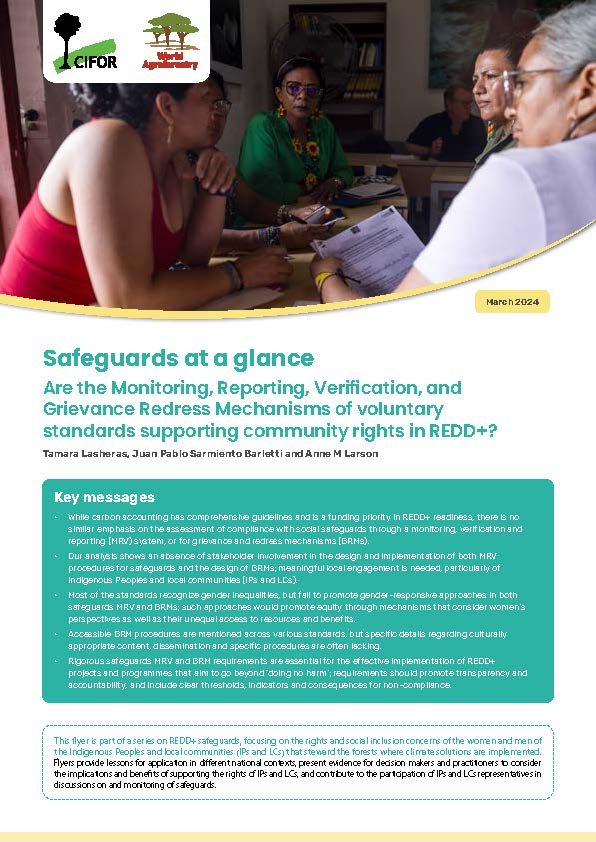Key messages
- While carbon accounting has comprehensive guidelines and is a funding priority in REDD+ readiness, there is no similar emphasis on the assessment of compliance with social safeguards through a monitoring, verification and reporting (MRV) system, or for grievance and redress mechanisms (GRMs).
- Our analysis shows an absence of stakeholder involvement in the design and implementation of both MRV procedures for safeguards and the design of GRMs; meaningful local engagement is needed, particularly of Indigenous Peoples and local communities (IPs and LCs).
- Most of the standards recognize gender inequalities, but fail to promote gender-responsive approaches in both safeguards MRV and GRMs; such approaches would promote equity through mechanisms that consider women’s perspectives as well as their unequal access to resources and benefits.
- Accessible GRM procedures are mentioned across various standards, but specific details regarding culturally appropriate content, dissemination and specific procedures are often lacking.
- Rigorous safeguards MRV and GRM requirements are essential for the effective implementation of REDD+ projects and programmes that aim to go beyond ‘doing no harm’; requirements should promote transparency and accountability, and include clear thresholds, indicators and consequences for non-compliance.
Download:
Publication year
2024
Authors
Lasheras, T.; Sarmiento Barletti, J.P.; Larson, A.M.
Language
English
Keywords
indigenous people, local community, sustainable development, development policy, standards, community forestry, climate change, mitigation
























